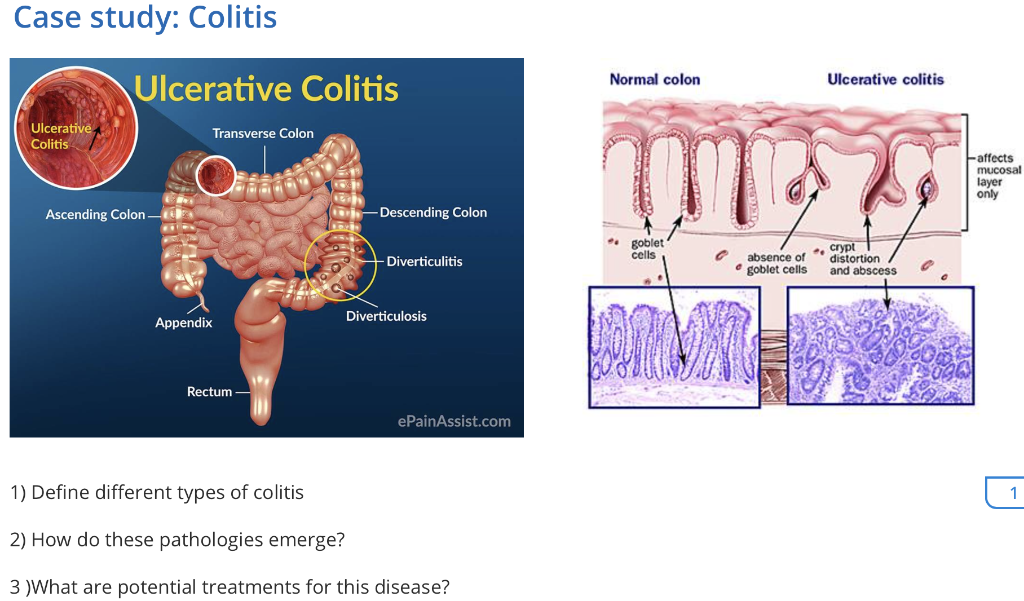

Don’t delay in scheduling your colonoscopy.

The American Cancer Society recommends that all adults at average risk for colon cancer begin screening at 45. You may need to provide a stool sample so that your doctor can test for hidden (occult) blood or organisms, such as infection-causing bacteria or, rarely, parasites in your stool. It is the only test that is appropriate for individuals who have a family history of colon cancer. Colonoscopy is the gold standard of colon cancer screening because it is the only test that allows a doctor to detect and remove pre-cancerous polyps in the same procedure. Ulcerative colitis is confined to the mucosa (inner lining) of the large intestine (colon and rectum) and starts in the rectum extending proximally into the. Eat a healthy diet and exercise regularly.Ĭolonoscopy Is the Gold Standard of Colon Cancer ScreeningĬolon cancer is highly treatable when doctors find it early.The median wall thickness in ulcerative colitis ranges from 4.7 to 9.8 mm. The most striking abnormalities in ulcerative colitis are colonic wall thickening and increased enhancement. Contact your doctor if one of your family members develops colon cancer or precancerous polyps. The current status of MRI in ulcerative colitis is that of a promising, non-invasive technique for imaging extent of more severe disease.Take prescribed medications as directed, even when your IBD is under control.Follow all instructions from your GI doctor to prepare for a colonoscopy.Schedule your colonoscopy at intervals recommended by your gastroenterologist.See a gastroenterologist at least once per year or if you have any changes in symptoms.If you have IBD, there are some steps you can take to reduce your risk of colon cancer: There can be diseased tissue and healthy tissue. How IBD Patients Can Reduce Risk of Colon Cancer Inflammation in the lining of the colon may look red and swollen and ulcers may look like rows or tracts. Our findings support the use of surveillance colonoscopy to improve CRC outcomes in IBD patients” ( Healio). “Colonoscopy within one year was associated with lower all-cause mortality than no colonoscopy. The study showed that “Colonoscopy within three years prior to CRC diagnosis compared with no colonoscopy was less likely to be diagnosed with late tumor stage,” said Hyun-seok Kim, MD, MPH, of Baylor College of Medicine. Stage of colon cancer at the time of detection.The outcomes evaluated included the following:

IBD Patients May Need a Colonoscopy Every One to Three YearsĪ new study published in Clinical Gastroenterology and Hepatology evaluated how varying colonoscopy intervals affected colon cancer outcomes in patients with IBD. Patients with Crohn’s disease may have healthy parts of the intestine as well as inflamed regions in both the small and large bowel.Ĭolon inflammation can cause a constant turnover of cells in the lining of the intestine, which increases the likelihood of cell irregularities that can result in cancer.


 0 kommentar(er)
0 kommentar(er)
